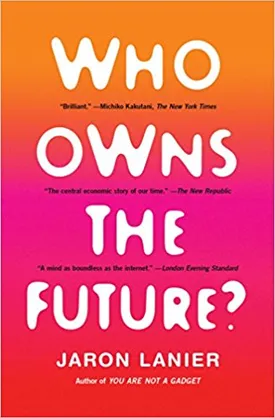Who Owns the Future? by Jaron Lanier is a thought-provoking exploration of the digital economy and its effects on modern society. Lanier, a renowned computer scientist and internet visionary, makes a compelling case that the tech industry and its digital economy are causing a dangerous consolidation of power and control that could have catastrophic consequences on our future. Furthermore, Lanier argues that the digital economy is putting profits before people, and creating a winner-take-all system that is leading to the marginalization of workers.
Lanier begins the book by describing the concept of the “winner-take-all” system in the digital economy, which is a system that rewards a small number of companies for taking the lion’s share of profits. In such a system, he argues, the world’s workers, including those in poor countries, are becoming increasingly vulnerable and underpaid as these companies gain greater control over the market. It is this concept of winner-take-all that Lanier identifies as the biggest threat to our future.
Lanier argues that the lack of ownership in the digital economy is further enabling the winner-take-all system and its effects on our economy. He stresses that there is too much of a “corporatist” mindset in today’s tech industry, where a select few companies own and control most of the technology. As a result of this, Lanier believes that the tech industry is creating too much inequality, not only by eliminating opportunities for the consumer, but by simultaneously moving wealth and power away from labor and toward capital.
In the second half of the book, Lanier offers a vision for a different type of economy focused on rewarding people for their creativity and innovation. He outlines a framework for a “cognitive economy” that would put people and their human capital front and center, rather than the profits of a few tech companies. In this model, Lanier argues that people would be rewarded for their work, rather than having their labor taken advantage of. It is this vision, he believes, that will help tackle systemic inequality and create a more equal digital economy.
Finally, Lanier lays out an action plan for achieving his “middle-out” vision. He proposes changes in policy, taxation and regulation that will help ensure a fairer economy for the average worker. He also suggests that government organizations and international agencies must take steps to safeguard the rights of workers, and encourage competition among the companies that make up the digital economy.
Lanier’s exploration of the digital economy is timely and thought-provoking. Who Owns the Future? is an essential read for anyone interested in technology and the implications of our current economic system. The book is an important reminder of the power and responsibility that comes from controlling the future of work and the economic mainstream.

